When it comes to running a business, having the right tools to manage customer relationships and support requests isn't just helpful, it's essential.
Two of the most well-known platforms in the space are HubSpot and Zendesk, each offering distinct advantages depending on your sales and support needs.
Whether you're a fast-growing startup or an established enterprise, the decision between these platforms can shape your team's efficiency, your customer experience, and ultimately, your bottom line.
Choosing between Zendesk and HubSpot isn't just about feature lists. It's about aligning with your business model. If your organization is support-heavy, Zendesk's specialization might serve you better. If you're deeply invested in sales and marketing alignment, HubSpot's all-in-one ecosystem might be a game changer.
In this article, we'll break down:
- A head-to-head comparison of HubSpot Service Hub and Zendesk for customer support
- A sales-focused look at Zendesk Sell vs HubSpot Sales Hub
- Ease of use, pricing, and integration capabilities
- Real-world use cases and a final recommendation based on your business priorities
Let's dive in.
HubSpot Service Hub vs Zendesk

In this section, we compare HubSpot and Zendesk along three metrics—customer service features, live chat and knowledge base tools, and CRM integration capabilities.
1. Core Customer Service Features Comparison
Choosing between HubSpot Service Hub and Zendesk is like picking between a Swiss Army knife and a precision tool. HubSpot offers an all-in-one, versatile solution, while Zendesk is a specialized powerhouse designed for deep, detailed support.
Zendesk is built for support at scale. Its strength lies in its mature ticketing system, customizable workflows, and omnichannel capabilities. With Zendesk, customer interactions across email, chat, phone, and social channels can be managed in one unified view.
HubSpot Service Hub, by contrast, is newer to the support game but integrates seamlessly with its CRM. It provides shared inboxes, help desk automation, and reporting tools—great for teams already using HubSpot.
2. Live Chat, Ticketing, and Knowledge Base Tools
- Live Chat: Zendesk offers robust live chat via its Chat and Messaging tools, complete with AI-powered bots and routing. HubSpot includes a live chat feature that integrates naturally with its CRM and Sales Hub.
- Ticketing: Zendesk's ticketing is more advanced, allowing for complex workflows, SLAs, and escalation policies. HubSpot's ticketing system is simpler but very user-friendly.
- Knowledge Base: Both platforms offer knowledge base capabilities. Zendesk's is more customizable and geared toward enterprises, while HubSpot provides a cleaner, easy-to-use interface ideal for SMBs.
3. CRM Integration and Automation Capabilities
HubSpot's CRM is native and deeply embedded across its Service Hub, giving you a unified view of customers from support to sales to marketing. Zendesk integrates with third-party CRMs, including Salesforce, but requires more setup.
Automation-wise, Zendesk offers advanced workflows, triggers, and macros. HubSpot's automation is easier to set up and ties nicely into marketing and sales funnels, though it may lack some of Zendesk's depth in support workflows.
We've summarized this comparison in the table below.
|
Feature Category |
HubSpot Service Hub |
Zendesk |
|
Core Customer Service Features |
CRM-native help desk, automation, shared inbox, and basic SLAs |
Advanced ticketing, omnichannel support, custom workflows, detailed SLAs |
|
Live Chat |
Integrated live chat with CRM, simple setup |
AI-powered live chat, proactive messaging, advanced routing |
|
Ticketing System |
Clean and user-friendly, ideal for SMBs |
Robust and customizable, built for enterprise-level support |
|
Knowledge Base |
Easy to build and maintain, customer-facing articles with analytics |
Highly customizable with advanced access controls and multilingual support |
|
CRM Integration |
Native, real-time CRM with seamless data sync across sales and marketing |
Integrates with Salesforce and others, but requires setup and third-party tools |
|
Automation Capabilities |
Drag-and-drop workflows tied to CRM activities, easier for beginners |
Complex macros, triggers, and automation rules for granular control |
Zendesk Sell vs HubSpot Sales Hub

Zendesk Sell and HubSpot Sales Hub are both sales-focused platforms designed to help businesses streamline their sales processes, manage pipelines, and track leads, but they cater to different needs and offer distinct features.
Sales Tools Overview: Pipeline Management, Lead Tracking, Email Automation
Zendesk Sell provides sales teams with tools for pipeline management, activity tracking, and simple reporting. It focuses on usability and integrates with Zendesk's support tools to close the loop between sales and customer service.
HubSpot Sales Hub, on the other hand, offers a much more robust feature set. From email templates and sequences to pipeline automation and advanced reporting, it's built to empower sales teams with data-driven insights.
HubSpot also shines with real-time lead behaviour tracking, meeting scheduling tools, and deep email integrations.
|
Feature Category |
Zendesk Sell |
HubSpot Sales Hub |
|
Pipeline Management |
Simple and intuitive pipeline view, activity tracking |
Advanced pipeline management with custom stages and drag-and-drop functionality |
|
Lead Tracking |
Tracks leads through stages, integrates with Zendesk Support for a full customer view |
Tracks leads through workflows, integrates with CRM for seamless follow-up |
|
Email Automation |
Basic email automation, sequencing, and reminders |
Advanced email sequencing, templates, scheduling, and workflows with deep analytics |
|
Sales Forecasting |
Basic forecasting with deal stages and revenue estimates |
Advanced sales forecasting, AI-driven insights, and predictive analytics |
|
Reporting and Analytics |
Simple reporting with basic metrics on leads and sales |
In-depth reporting with customizable dashboards, funnel analysis, and lead behaviour tracking |
|
Integrations |
Integrates with Zendesk Support, Google Workspace, and a few third-party tools |
Integrates with a wide range of third-party apps, including marketing and support tools |
Which Is Better for Sales Teams: Zendesk Sell vs HubSpot?
If your sales process is relatively straightforward and your team is small, Zendesk Sell can do the job. It's easy to use and quick to implement.
But if you're looking for a scalable solution with advanced sales automation, analytics, and marketing alignment, HubSpot Sales Hub is the clear winner. It's purpose-built for high-growth sales teams.
HubSpot Service vs Zendesk: Ease of Use and Pricing

In this section, we compare Zendesk vs HubSpot when it comes to how easy each one is to use, and how hard each is on the user's wallet.
User Interface and Onboarding Experience
HubSpot wins for ease of use. Its modern interface is intuitive, and users typically get up to speed quickly without much training. Built-in tutorials and a thriving knowledge base help onboard new users fast.
Zendesk has a steeper learning curve, especially for admins setting up complex workflows. But once configured, it's highly powerful and customizable.
Pricing Tiers and Value for Small vs Large Teams
HubSpot: Offers a generous free tier across its tools. Paid tiers scale based on features and user limits, which can get pricey but provide great value, especially if you're using multiple Hubs (Sales, Service, Marketing).
Zendesk: Also offers tiered pricing, typically based on support agents. It tends to be more cost-effective for support-heavy teams, especially with enterprise needs.
For small businesses, HubSpot's freemium model is incredibly attractive. For large support teams, Zendesk often provides more power per dollar.
Zendesk vs HubSpot Service Hub: CRM and Integration
CRM Strengths and Ecosystem Depth
HubSpot CRM is the backbone of the HubSpot platform. It's free, powerful, and deeply integrated across all tools. It provides a unified view of each contact, from first website visit to closed support ticket.
Zendesk, while strong on support workflows, relies on third-party CRMs for more holistic relationship management. If CRM is a key part of your strategy, HubSpot has the upper hand.
Integration with Marketing Tools and Third-Party Apps
HubSpot has a native Marketing Hub, giving you one ecosystem for email marketing, landing pages, lead scoring, and more. It also integrates with over 1,000 apps in its marketplace.
Zendesk supports integrations through Zendesk Marketplace, with strong offerings in support and collaboration tools. However, marketing tools often require extra setup or third-party connectors.
HubSpot vs Zendesk: Which Should You Choose?

Ideal Use Cases for Each Platform
- Choose Zendesk if: You're a support-driven organization with a large customer service team, need advanced ticketing and live chat tools, or already use a third-party CRM like Salesforce.
- Choose HubSpot if: You want an all-in-one platform that aligns sales, marketing, and support; your business leans heavily into CRM and automation; or you're looking to scale quickly.
Zendesk Pros:
- Advanced ticketing and support workflows
- Customizable help center and live chat tools
- Strong for large or enterprise support teams
Zendesk Cons:
- Limited CRM features
- Can be complex to set up
- Marketing alignment requires external tools
HubSpot Pros:
- Unified CRM across all hubs
- Seamless integration between sales, marketing, and support
- Great user interface and onboarding experience
HubSpot Cons:
- Can become expensive as you scale
- Less powerful support workflows compared to Zendesk
Conclusion
Both Zendesk and HubSpot are exceptional platforms—but they shine in different ways. Zendesk is a customer support powerhouse, ideal for teams who live and breathe tickets and live chat. HubSpot is a versatile growth engine, with a unified CRM and full-funnel tools for sales, marketing, and service.
Recommendation Based on Support or Sales Priorities
- If your top priority is support at scale, Zendesk is your best bet.
- If you're focused on growth, CRM-driven sales, and customer experience, HubSpot is the platform to build on.
Still unsure? Have a look at this detailed guide that explains how HubSpot can help you unlock marketing growth.
And if you found this Zendesk vs HubSpot comparison informative, make sure to also have look at this HubSpot vs Pardot comparative guide to further narrow down your search for the best solution for your business.
No matter the platform you use, always make sure to try the free tiers of each platform to see which works best. For better results, consult a B2B tech strategist to help guide your choice based on your workflows and goals. At Roketto, we've been helping businesses grow sustainably through tailored growth strategies. Book a call today to know more.

Chris Onyett
Chris is one of the managing partners at Roketto. His area of expertise is digital marketing and loves sharing and educating on topics like Google Ads, CPC bidding tactics, Google Analytics, and marketing automation. When Chris isn't in the office, he enjoys playing volleyball, mountain biking, and hiking with his American Eskimo.











2.png)
2.png)









